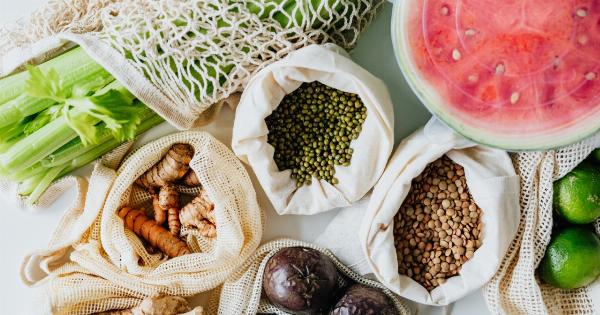Foodborne illnesses happen when food is contaminated by harmful bacteria, viruses, or parasites. These pathogens can cause a wide range of symptoms such as vomiting, diarrhea, fever, and abdominal pain.
Protecting yourself from foodborne illnesses requires taking precautions when buying, cooking, and storing food.
Choose Safe Foods
When buying food, it’s important to choose safe options to reduce your risk of foodborne illness. Here are some things to consider:.
Buy Fresh and Clean Produce
Choose fruits and vegetables that are in good condition, free of bruises, and clean. Rinse produce under running water before consuming to remove any dirt or bacteria that may be present.
Avoid fruits and vegetables that have been cut or peeled, as they are more likely to be contaminated.
Buy Meat From Trusted Sources
When buying meat, look for options that come from reputable sources. Choose cuts that are fresh, well packaged, and have not been bruised or damaged. Avoid any meat that appears discolored or has an unusual odor.
Purchase Pasteurized Dairy Products
Only purchase dairy products that have been pasteurized, as this process kills harmful bacteria that may be present. Avoid raw or unpasteurized milk and cheese.
Cook Food Thoroughly
Cooking food thoroughly is an essential step in preventing foodborne illnesses. Here are some tips for cooking food safely:.
Use a Food Thermometer
Using a food thermometer is the most accurate way to ensure that food is cooked to a safe temperature. The following are the recommended safe temperatures for commonly consumed foods:.
- Beef, pork, lamb: 145°F
- Ground meat: 160°F
- Poultry: 165°F
- Seafood: 145°F
Avoid Cross-Contamination
Cross-contamination is when harmful bacteria from one food item touches another. To avoid cross-contamination, use separate cutting boards for raw meat and produce. Wash your hands, utensils, and countertops thoroughly after handling raw meat.
Reheat Leftovers Safely
When reheating leftovers, make sure they reach a temperature of 165°F before consuming. Use a food thermometer to ensure that the entire dish has been heated evenly.
Store Food Properly
Storing food properly is important to prevent contamination and the growth of bacteria. Here are some tips for storing food safely:.
Refrigerate or Freeze Food Promptly
Refrigerate or freeze perishable items, such as meat and dairy, immediately after purchasing. Keep the temperature of your refrigerator at or below 40°F.
Use Safe Storage Containers
Use clean, airtight containers to store food. Avoid storing food in containers that have been damaged or warped.
Discard expired food
Discard any items that have passed their expiration date or that have been stored for too long. Use the “first in, first out” rule when rotating your food to prevent spoilage.
Conclusion
Foodborne illnesses are a serious but preventable problem. By following these tips to choose safe foods, cook food thoroughly, and store food properly, you can reduce your risk of contamination and stay healthy.


























